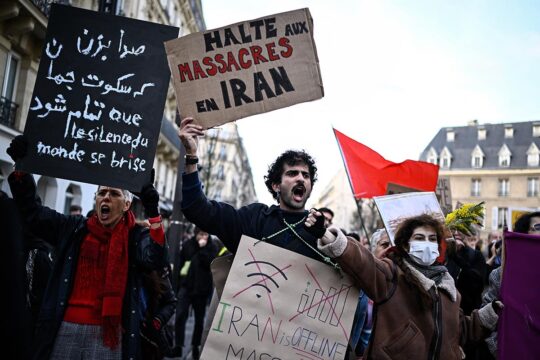To listen to the podcast, click on the "play" button below:
The New Year of 2020 started with some extraordinary events; a nearly war between Iran and the United States, precipitated by the American assassination of senior general Qassem Soleimani, retaliatory strikes by the Iranians and the downing of a civilian aircraft. Frankly it’s been a bit too much to keep on top of, and Stephanie admits to retreating to her couch to snuggle with her cats.
Nevertheless, we decided to peek our noses out, and bring you the first Justice Update of the year, looking at one small sliver of the maelstrom of the past few days – the tweeted threat by Donald J. Trump to specifically target Iranian cultural sites in any conflict with Tehran.
Polina Levina, an international lawyer, whose essay on Syrian cultural heritage and war crimes earned her a prize last year, to help guide us through some of the key issues.
There have been many many great takes by great international lawyers on what has been happening. It feels a bit invidious to select only some (but we do love Oona Hathaway and want her on the show sometime, and love the investigatory work of Bellingcat) – so our advice – keep it simple: read Just Security, EJIL Talk, Opinio Juris and follow all the editorials in the Washington Post and the New York Times.
 ASYMMETRICAL HAIRCUTS
ASYMMETRICAL HAIRCUTS
This podcast has been published as part of a partnership between JusticeInfo.net and Asymmetrical Haircuts, a podcast on international justice produced from The Hague by journalists Janet Anderson and Stephanie van den Berg, who retain full control and independence over the contents of the podcast.






